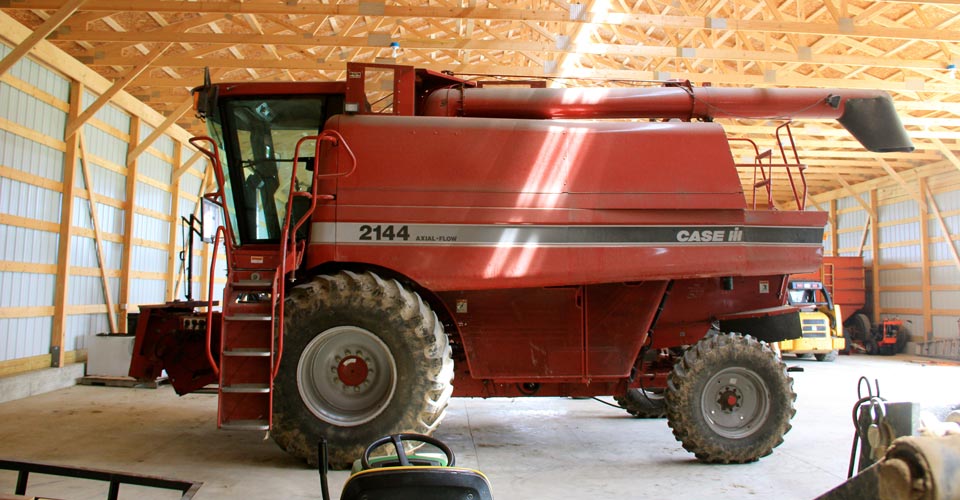This post may contain affiliate links which means I may receive a commission for purchases made through links. Learn more on my Private Policy page.
In this article, you will discover the importance of properly lubricating your farm machinery and learn some valuable tips on how to do it effectively. Taking care of your equipment is crucial to ensure its optimal performance and longevity. By understanding the right lubrication techniques, you can keep your farm machinery running smoothly and efficiently, saving you time and money in the long run. So let’s dive right into this informative guide on how to properly lubricate your farm machinery!
Importance of Proper Lubrication
Proper lubrication is crucial for the optimal performance and longevity of your farm machinery. It plays a significant role in reducing friction and wear, preventing rust and corrosion, and improving overall performance and efficiency.
Reducing friction and wear
Friction is a natural result of moving parts in machinery, and excessive friction can cause wear and tear on the components. Lubrication creates a protective layer between the moving parts, reducing friction and minimizing wear. By ensuring that there is sufficient lubrication in your machinery, you can keep the parts working smoothly and extend their lifespan.
Preventing rust and corrosion
Farm machinery operates in harsh outdoor environments, where exposure to moisture and other elements can lead to rust and corrosion. Proper lubrication forms a barrier that protects vulnerable parts from these elements, preventing rust formation and keeping your equipment in good condition. Regular lubrication and maintenance significantly reduce the risk of costly repairs caused by rust damage.
Improving performance and efficiency
Efficiently functioning machinery is crucial for maximizing productivity on the farm. Proper lubrication helps to reduce energy loss due to friction, enabling your machinery to operate at its optimum level. It ensures smooth movement of the parts, minimizing resistance and allowing your equipment to work efficiently. Improved performance leads to better fuel efficiency, helping you save on operating costs in the long run.
Types of Lubricants
To choose the right lubricant for your farm machinery, it’s essential to understand the different types available and their specific applications.
Mineral oils
Mineral oils are petroleum-based lubricants commonly used in various applications. They offer good thermal stability and lubrication properties and are effective in standard operating conditions. Mineral oils are widely available and relatively inexpensive, making them a popular choice for many farm machinery lubrication requirements.
Synthetic oils
Synthetic oils are chemically engineered lubricants that provide superior performance over mineral oil in extreme conditions. They are designed to handle wide temperature ranges, heavy loads, and high speeds. Synthetic oils offer enhanced protection against wear, oxidation, and viscosity breakdown, ensuring optimal performance and extended equipment life. While synthetic oils are more expensive than mineral oils, their superior performance makes them ideal for demanding farm machinery applications.
Greases
Greases consist of a lubricating oil base thickened with a soap-like substance. They provide excellent adhesion and cling to surfaces, making them ideal for applications where lubrication needs to be retained for an extended period. Greases are commonly used in bearings, gears, and other high-load applications. They provide protection against corrosion and water washout, making them suitable for farm machinery exposed to harsh elements.
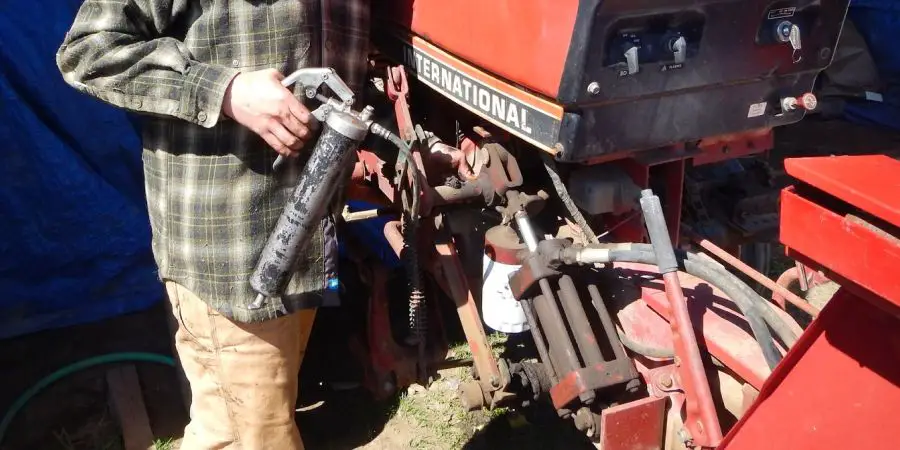
This image is property of www.beginningfarmers.org.
Choosing the Right Lubricant
Selecting the appropriate lubricant for your machinery is crucial for optimal performance and longevity. Consider the following factors when choosing the right lubricant:
Consider the machinery type and load
Different machinery types and applications require specific lubrication properties. Heavy-duty machinery may require lubricants designed for high loads and extreme conditions, while lighter equipment may have different lubrication requirements. Consult the equipment manufacturer or a lubrication specialist to ensure you’re using the right lubricant for your specific machinery and its operating conditions.
Check the manufacturer’s recommendations
Equipment manufacturers often provide specific lubrication recommendations for their machinery. These guidelines should be followed to maintain warranty coverage and ensure optimal performance. Additionally, manufacturers may have tested and approved specific lubricants for use in their equipment, guaranteeing compatibility and performance.
Consider the environmental conditions
The climate and environmental conditions in which your farm machinery operates can impact lubrication performance. Extreme temperatures, excessive dust or dirt, and high humidity levels can affect the lubricant’s effectiveness. Choose a lubricant that can handle these specific conditions, providing adequate protection and minimizing potential issues.
Preparing for Lubrication
Before proceeding with lubrication, it’s essential to prepare your machinery and gather the necessary tools and supplies. Proper preparation ensures a smooth and efficient lubrication process.
Inspecting the machinery
Take the time to inspect your machinery before lubrication. Look for any signs of damage, wear, or leaks that may require immediate attention. Inspecting the machinery allows you to identify potential issues and address them before lubricating. It also helps ensure a clean and safe working environment during the lubrication process.
Gathering the necessary tools and supplies
To properly lubricate your farm machinery, gather the required tools and supplies beforehand. This may include lubricant containers, oil pumps or grease guns, rags or absorbent materials for cleanup, and any specific tools necessary for accessing lubrication points. Having everything readily available saves time and allows for a more organized lubrication process.
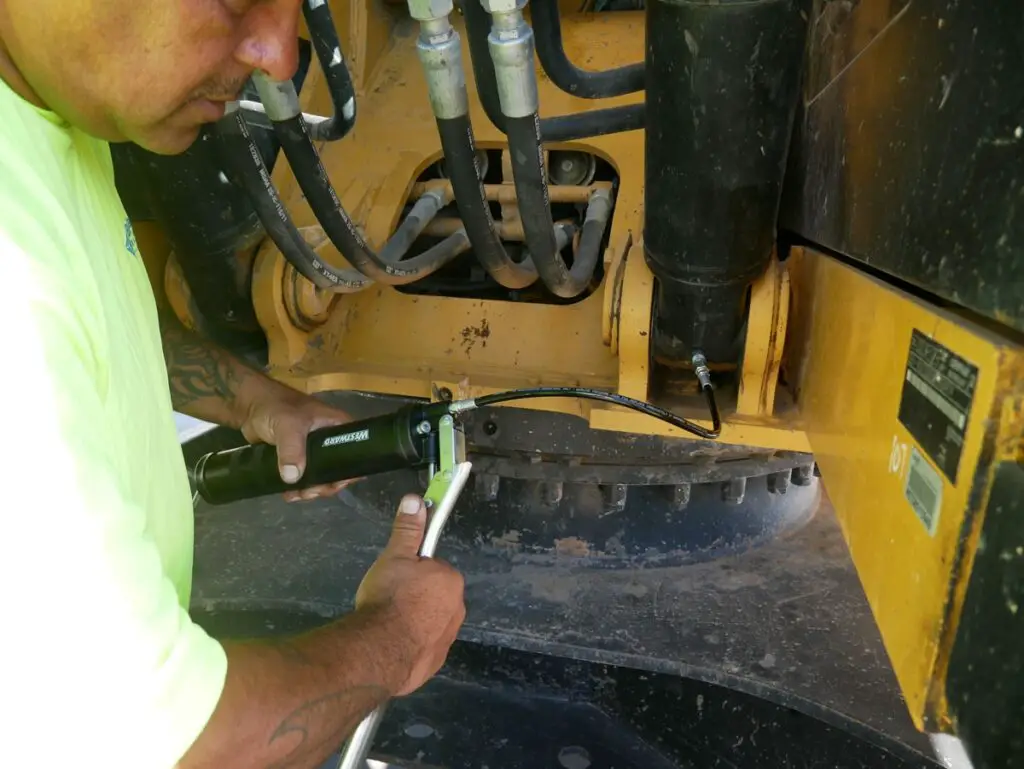
This image is property of cdn.heavyequipmentrentals.com.
Proper Lubrication Techniques
Proper lubrication techniques are vital to achieving effective lubrication and ensuring the longevity of your farm machinery. Follow these steps when lubricating your equipment:
Identifying lubrication points
Every piece of farm machinery has designated lubrication points where lubricant should be applied. Consult the equipment manual or look for lubrication point indicators on the machinery itself. Properly identifying these points is crucial to ensuring all relevant parts receive adequate lubrication.
Cleaning the lubrication points
Before applying lubricant, it’s important to clean the lubrication points thoroughly. Dirt, debris, and old lubricant residues should be removed to prevent them from contaminating the fresh lubricant. Use a clean cloth, brush, or compressed air to clean the lubrication points effectively.
Applying the lubricant
Once the lubrication points are clean, apply the appropriate lubricant as recommended by the equipment manufacturer or lubricant supplier. Use the proper technique for the specific lubrication point, whether it requires oil, grease, or a specialized lubricant. Be mindful of the recommended quantity to avoid over-lubrication, which can lead to excess heat or component damage.
Ensuring proper distribution
After applying the lubricant, operate the machinery briefly to ensure proper distribution. This allows the lubricant to spread evenly and reach all relevant parts, ensuring optimal lubrication. If feasible, check for any signs of inadequate lubrication during this process, such as unusual noise or increased friction.
Checking for leaks and excess lubricant
Once the lubricant has been distributed, inspect the machinery for any leaks or excess lubricant. Leaks often indicate a damaged seal or faulty component that should be addressed promptly. Excess lubricant should be wiped away to avoid accumulation and potential contamination of other components.
Frequent Lubrication Areas
Certain parts and components in farm machinery require more frequent lubrication due to their continuous movement or exposure to heavy loads. Be particularly attentive to these areas when performing lubrication:
Bearings and bushings
Bearings and bushings undergo repetitive movements and high levels of stress. Regular lubrication is crucial to prevent premature wear and reduce friction. Pay close attention to these components and follow the manufacturer’s recommendations for lubrication frequency and type.
Chains and sprockets
Chains and sprockets are constantly exposed to dirt, dust, and debris, making them prone to wear and corrosion. Frequent lubrication helps reduce friction and maintains proper functionality. Clean these components thoroughly before applying lubricant and ensure even distribution along the entire length of the chain.
Gears and gearboxes
Gears and gearboxes are critical to the operation of many farm machinery systems. Proper lubrication minimizes friction and wear, ensuring smooth gear operation and extending their service life. Follow the manufacturer’s recommendations for lubricating gears and gearboxes, paying close attention to the lubricant type and frequency.
Pivot points and hinges
Pivot points and hinges enable the movement of various parts in farm machinery. Regular lubrication is required to maintain their smooth operation, reduce friction, and prevent rust. Apply lubricant generously to these areas, ensuring complete coverage to allow for unrestricted movement.

This image is property of tym.world.
Special Considerations for Different Machinery
Different categories of farm machinery may have specific lubrication requirements. Consider the following special considerations when lubricating certain types of equipment:
Tractors
Tractors often have complex operational systems, including engines, transmissions, hydraulic systems, and power take-off (PTO) units. Each component may require different lubricants and lubrication frequencies. Consult the tractor manufacturer’s recommendations and follow them carefully for optimal performance and longevity.
Combines and harvesters
Combines and harvesters contain multiple moving parts and systems that need proper lubrication for efficient operation. Pay particular attention to the header bearings, drive chains, and various gearboxes. Regular inspection and lubrication are essential to ensure these machines perform optimally during the harvest season.
Planting and seeding equipment
Planting and seeding machinery often operate in dusty and abrasive conditions. Frequent lubrication and cleaning are necessary to protect these machines from wear and damage. Pay close attention to metering systems, closing wheel pivots, and row unit drives. Use lubricants with excellent resistance to dust and dirt contamination.
Hay and forage equipment
Hay and forage equipment, such as balers and mowers, require regular lubrication to handle high workloads and challenging conditions. Pay attention to the bearings, rollers, and cutting components, ensuring they are well-lubricated and free of debris. Lubricate according to the manufacturer’s recommendations to maximize productivity and avoid premature wear.
Sprayers and fertilizers
Sprayers and fertilizer equipment often involve hydraulic systems, pumps, and valves that require proper lubrication. Check and maintain the lubrication points in the often-required filtration and agitation systems, ensuring smooth operation and reducing the risk of costly downtime.
Benefits of Regular Lubrication
Regular lubrication offers several benefits that can significantly impact the overall performance and lifespan of your farm machinery:
Extended machinery lifespan
Proper lubrication reduces friction, wear, and the risk of damage to critical components. By providing adequate lubrication, you can extend the lifespan of your farm machinery, delaying the need for costly replacements or major repairs.
Reduced maintenance and repair costs
Well-lubricated machinery experiences fewer breakdowns and requires less frequent maintenance and repair. By investing time and effort in regular lubrication, you can reduce operating costs and minimize downtime caused by unexpected breakdowns.
Better fuel efficiency
Efficiently lubricated machinery operates with reduced friction and resistance, leading to improved fuel efficiency. By minimizing energy losses, you can optimize your equipment’s performance and save on fuel costs, ultimately contributing to the profitability of your farm operation.
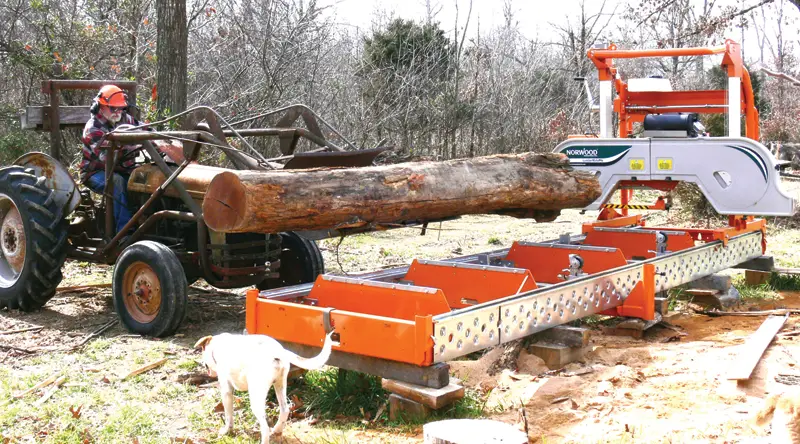
This image is property of ogden_images.s3.amazonaws.com.
Signs of Inadequate Lubrication
It’s essential to be vigilant for signs of inadequate lubrication in your farm machinery. Recognizing these indicators helps you identify potential issues before they escalate:
Increased noise and vibration
Unusual or increased noise during operation can indicate inadequate lubrication. Pay attention to any grinding, knocking, or squealing sounds, as they may suggest insufficient lubrication between moving parts.
Overheating
Overheating is often a result of excessive friction caused by insufficient lubrication. Monitor the temperature of your machinery during operation and address any sudden or consistent temperature spikes promptly.
Excessive wear or damage
Inadequate lubrication can cause accelerated wear and tear on machinery components. Inspect your equipment regularly for signs of excessive wear, such as worn-out bushings, thinning gears, or damaged bearings.
Decreased performance
If you notice a sudden decline in your machinery’s performance, it could be an indication of insufficient lubrication. Reduced power, slower operation, or increased resistance may suggest a lubrication issue that needs to be addressed.
Maintenance and Recordkeeping
Establishing a lubrication schedule and maintaining accurate records are essential for effective machinery maintenance and long-term performance:
Establishing a lubrication schedule
Create a lubrication schedule for your farm machinery based on manufacturer recommendations and industry best practices. Consider the specific needs of each machine, its usage intensity, and environmental conditions. Adhering to a regular lubrication schedule ensures consistent maintenance and prevents unnecessary wear and potential breakdowns.
Documenting lubrication activities
Keep detailed records of all lubrication activities performed on your machinery. Document the lubricant type used, quantity, date, and any relevant observations or notes. This recordkeeping allows you to track maintenance activities, identify patterns or issues, and ensure compliance with manufacturer requirements.
Monitoring and analyzing lubricant condition
Regularly monitor the condition of the lubricant in your machinery. Check for signs of contamination, degradation, or inadequate performance. Analyzing oil samples periodically can provide valuable insights into lubricant quality and machinery health. Address any issues promptly to maintain optimal lubrication and prevent potential damage.
In conclusion, proper lubrication is vital for the efficient and long-lasting operation of your farm machinery. By reducing friction and wear, preventing rust and corrosion, and improving overall performance and efficiency, appropriate lubrication practices contribute to the productivity and profitability of your farm operation. Take the time to choose the right lubricant for your specific machinery, follow proper lubrication techniques, and establish a regular maintenance schedule to ensure your equipment operates smoothly and reliably for years to come.
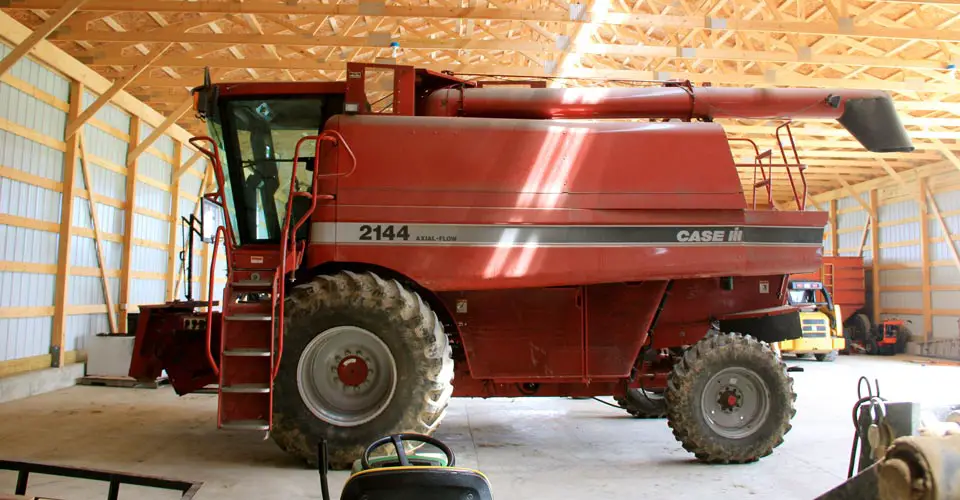
This image is property of chsag.com.
This post may contain affiliate links which means I may receive a commission for purchases made through links. Learn more on my Private Policy page.

